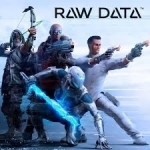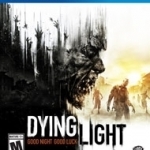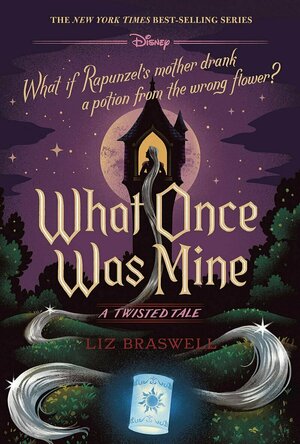
You Can't Spell America Without Me: The Really Tremendous Inside Story of My Fantastic First Year as President
Kurt Andersen and Alec Baldwin
Book
Political satire as deeper truth: Donald Trump’s presidential memoir, as recorded by two...
politics comedy
Daniel Boyd (1066 KP) rated Dying Light in Video Games
Jul 19, 2017
The big gimmick in this game is the free running. I went into the game expecting Dead Island meets Mirror’s Edge, but instead I got something more akin to Shadow Fall or Far Cry’s janky free running. The player character honestly feels so heavy and clunky and there is no coherent flow to the free running at all. The other gimmick is the idea of ‘drops,’ which are basically supply drops that are dropped in various locations throughout the map. The controller will vibrate, the blue icon will appear on the map and you haul ass across the environment towards it, in the awkward parkour motion that you are forced to endure throughout the game. The first couple of drops are difficult when you don’t yet really know what you are doing, but after a while you know what to expect and as soon as you feel the controller rumble and the icon appear on the mini map you know to just run as fast as possible towards the icon and everything will be straightforward. Also, while I am aware that players don’t tend to love this game for it’s immersive story, what story they attempt is garbage delivered by poor voice acting, in addition it makes absolutely no sense that you are just some random guy that the people from The Tower find out on the street and within spending a day or two with them they declare you to be the best free runner in the whole tower, it is all just far too convenient. The game also attempts to force you to change your play style at night, some of the zombies transform into hulking, hard to kill beasts with super speed, but their field of vision also appears on the map, so as long as you can avoid that, everything will be hunky dory and even if you do get seen you can just run away for a bit and climb onto a ledge and they will soon forget about you. I actually think that the virals that attack you during the day are more dangerous as they don’t have a specific field of view and are faster than the night time virals. Now while all these minor gripes do add up to my dislike of the game, the biggest let down in this game is it’s loot system. The loot in Dead Island was so good and when you had a great weapon, you knew it was great because it was so effective and felt so good to use in combat, there was just a charm to the weapons you could find in that game. The loot in Dying Light is much more generic and the effectiveness of the weapons has been neutered. The game starts you off with flimsy blunt weapons, which is expected, then you either find or save up your money and buy a sweet new axe or machete, you think that this is going to help you take out everything so much easier, but there isn’t much more of an effect, like maybe instead of dying after 18 hits a guy will die after 15, but that still doesn’t exactly feel effective to me. Also, the weapons degrade quickly, but that doesn’t matter because there is a good amount of weapons to buy and find, but since they have all been nerfed anyway it renders the whole process totally pointless, the loot system is really redundant and has no impact at all on the game. Also the guns are overpowered as all hell. The big guys with the heavy weapons will take you around fifty smacks with a hammer to bring down, but if you have a pistol and jump over a three foot wall, they can’t follow you and so they just stand still, so you just pop two or three caps into their skull and they go down in a couple of seconds. I also dislike how the damage you inflict on an enemy is the same no matter where on the body that you hit them. You can whack a guy repeatedly in the head or the legs and he will fall down in the same amount of time either way.
Overall, this game tries to be the next gen version of Dead Island, but what it delivers is a game that looks and feels like it came out at the same time as its predecessor and in a lot of ways it is even less intuitive than the first game. I know that I keep comparing this game to Dead Island, but I honestly believe that if you are looking for a first person zombie survival game, you should save yourself the cash and go pick up Dead Island as it plays better than this one and is graphically on par. However even though I have torn this game apart for the duration of this review, it is still a good game and I can see why people like it, I just don’t understand the massive amounts of praise it gets when Dead Island was a better game.
Lottie disney bookworm (1056 KP) rated What Once Was Mine in Books
Oct 25, 2021
As you will all know by now, I am in love with the Twisted Tales series and have to read each installment as they are released. What Once was Mine is the 12th Twisted Tale book and the 7th written by Liz Braswell so to say I was excited would be an understatement.
As always, TT books come with a tag line to lure you in and this one is “What if Rapunzel’s mother drank a potion from the wrong flower?” Yes, instead of the golden Sundrop flower, the ailing pregnant queen is mistakenly given a potion using the Moondrop flower, resulting in a silver-haired princess whose power kills rather than heals!
Of course, that casts the whole locking the princess in a tower concept into an entirely new light! However, many of the other elements remain the same as Disney’s ‘Tangled’ movie: Gothel is Rapunzel’s captor and “mother”, Flynn steals a crown and is on the run from the Stabbington brothers and Rapunzel is desperate to see the floating lights.
What Liz Braswell manages to do (very well, in my opinion) is to maintain all these similarities, keeping her readers rooted to the original story but also to bend the original fairytale into something a bit more mature, a bit darker and, in some cases, a bit more real.
“𝙏𝙝𝙚 𝙩𝙧𝙪𝙩𝙝 𝙖𝙗𝙤𝙪𝙩 𝙮𝙤𝙪 𝙞𝙨 𝙖𝙡𝙡 𝙩𝙖𝙣𝙜𝙡𝙚𝙙, 𝙡𝙞𝙠𝙚 𝙮𝙤𝙪𝙧 𝙗𝙧𝙖𝙞𝙙𝙨, 𝙍𝙖𝙥𝙪𝙣𝙯𝙚𝙡”
What Once was Mine is written from Rapunzel’s perspective. Now, this may be an obvious choice, but it also gives Braswell the opportunity to show her protagonist in a slightly more mature light than we are used to. Yes, Rapunzel is scatty, enthusiastic and teeth-grittingly cheerful about everything but she also believes she is dangerous and that she belongs in the tower for the safety of others.
Rapunzel has always been told that her hair killed her parents and that Gothel has been charged with her care and protection. However, what I really enjoyed about Braswell’s Rapunzel is that, although she begins with the same blind faith in Gothel as she has in the movie, she soon develops an inner turmoil of emotions with regards to her captor, questioning where she spends her days and recognising the little digs often made at the daughter’s expense.
As her journey continues, Rapunzel observes other mother-daughter relationships and her doubt and distrust of Gothel begins to build as a result. Lords, ladies and bandits alike are hunting for Rapunzel in order to claim her as their prize but this couldn’t be orchestrated by her mother, the only family she has ever known, could it?
“𝘽𝙚𝙜𝙞𝙣 𝙮𝙤𝙪𝙧 𝙣𝙞𝙣𝙚𝙩𝙚𝙚𝙣𝙩𝙝 𝙮𝙚𝙖𝙧 𝙗𝙮 𝙛𝙤𝙧𝙜𝙞𝙫𝙞𝙣𝙜 𝙮𝙤𝙪𝙧𝙨𝙚𝙡𝙛, 𝙍𝙖𝙥𝙪𝙣𝙯𝙚𝙡. 𝙏𝙝𝙖𝙩’𝙨 𝙖 𝙛𝙖𝙧 𝙗𝙚𝙩𝙩𝙚𝙧 𝙜𝙞𝙛𝙩 𝙩𝙝𝙖𝙣 𝙛𝙡𝙤𝙖𝙩𝙞𝙣𝙜 𝙡𝙖𝙣𝙩𝙚𝙧𝙣𝙨.”
I have conflicting feelings when it comes to the darker elements of What Once Was Mine. The inclusion of the very real Countess Bathory took me by surprise and was quite gruesome in places: not a problem for a grown-up Disney nerd but I’m not sure whether I will be passing this one along to the Mini Bookworm any time soon.
There is also the narrator of the story: a brother making up an alternative Rapunzel story for his sister while she is undergoing chemo. I understand this is an emotive topic for the author and I almost got it as a tool for the story-telling, enabling the use of quite modern, colloquial terms such as “murderhair” and enabling the creative inclusion of characters such as Maximus.
I really wanted this technique to be profound and make the story mean more, such as fairytales having an important place in the modern world for example. Unfortunately, it fell a little flat for me: it was an interesting tweak but it didn’t make me feel as much as I wanted it to.
It is not all doom and gloom though, Rapunzel’s perspective of the world provides comic moments: her (limited) knowledge of the world comes from the 37 books that she owns, leading to a moose that is definitely a squirrel and a cat which acts suspiciously like a fox. We are also not deprived of the regulars of The Snuggly Duckling, indeed all of your favourites from the film turn up for this novel.
Braswell’s characterisation when it came to Flynn was spot on in my opinion. The observation by Rapunzel that there is the “real” Flynn and then there is the charming, roguish mask he uses was perfect! Gina was also a great addition, desperately trying to be an adventurer/criminal and not being taken seriously just because she is a girl. The relationship between her and Flynn was adorable and, of course, Gina’s mother is just legendary.
“𝙎𝙝𝙚 𝙬𝙖𝙨𝙣’𝙩 𝙘𝙝𝙖𝙨𝙞𝙣𝙜 𝙙𝙞𝙨𝙩𝙖𝙣𝙩 𝙡𝙞𝙜𝙝𝙩𝙨; 𝙨𝙝𝙚 𝙬𝙖𝙨 𝙥𝙪𝙧𝙨𝙪𝙞𝙣𝙜 𝙖𝙣 𝙪𝙣𝙧𝙚𝙖𝙡𝙞𝙯𝙚𝙙 𝙙𝙧𝙚𝙖𝙢 𝙤𝙛 𝙣𝙤𝙧𝙢𝙖𝙡𝙘𝙮”
The writing style isn’t for everyone and, I must admit, this is the twisted tale which I have probably put down and walked away from the most. However, if you can stick it through the slow sections the story is really worth it and provides a much-admired evolution of the Disney Princess.
Don’t get me wrong - in the animated movie Rapunzel is great and all but by the end she is a princess with a haircut and a smouldering husband. Braswell’s Rapunzel has magic that she needs to study, understand and control, she is a future Queen in the making and simply has more of a purpose than her animated counterpart.
“𝙎𝙝𝙚 𝙝𝙖𝙙 𝙥𝙤𝙬𝙚𝙧 𝙖𝙣𝙙 𝙬𝙞𝙡𝙡 𝙖𝙣𝙙 𝙖 𝙨𝙩𝙪𝙗𝙗𝙤𝙧𝙣 𝙙𝙞𝙨𝙥𝙤𝙨𝙞𝙩𝙞𝙤𝙣”
What Once Was Mine brings a whole new depth to the characters of Disney’s Tangled. It gives us a new (frankly, disgusting) villain alongside all our favourite characters and definitely presents a creative twist on the traditional story. Don’t worry, Rapunzel still gets her Happily Ever After, but she fought a little harder for it this time around!
Andy K (10823 KP) rated Vertigo (1958) in Movies
Oct 20, 2019
Once revived, Madeleine is no worse for wear, but does not remember the incident or the circumstances of her rescue at the hands of Scottie. They form a quick friendship that turns quickly into lust and a deepening feeling of obsession for Scottie. One day, they take a trip to Mission San Juan Bautista based on a nightmare vision described by Madeleine. She climbs the bell tower, but Scottie is unable to follow restrained by his vertigo and, unfortunately, has to just watch as she plunges to her death.
Afterwards, an investigation reveals Madeleine had been exhibiting irrational behavior which was the cause of her husband's concern in hiring Scottie, so her death is ruled a suicide. Scottie is distraught over the loss and takes consolation in his friend, Midge. On the mend, Scottie frequents locations Madeleine had visited previously hoping this would offer consolation to his grief. He meets a familiar, yet strange woman there.
Vertigo is usually not only considered Hitchcock's best film, but also on many critic lists as the greatest film of all time alongside Citizen Kane and Casablanca.
The movie does have a lot to admire including its complicated, intriguing screenplay which had smart discussions with its characters with lots of exposition given at various points challenging the audience to keep up. The film's situations are interesting and the plot keeps going at a vicious pace through the twists to the end.
I learned recently Hitchcock diva Vera Miles was initially cast for the role of Madeleine, but had to withdraw as she became pregnant before filming so Kim Novak replaced her. Due to several unforeseen delays, Miles had given birth and could've been available; however Hitchcock forged ahead with Novak anyways.
The harrowing initial scene where Scottie chases a random perpetrator across blackened rooftops only to stumble and discover his title affliction really sets the tone for the film both with the cinematography which is stunning and the blistering score at full pace.
Picking an absolute favorite Hitchcock movie has always been difficult for me. Vertigo would probably rank 3rd behind Psycho and The Birds, but still all masterpieces. I love the fact as in other Hitchcock classics, you think you know where the story is going, but he always keeps you guessing.
A magnificent performance by Jimmy Stewart as well. Well deserved of the praise he has gotten over the years for it. He is intense, charming and morose throughout the film which makes him electrifying to watch. His work with Hitchcock including Rope and Rear Window is among his best work.
A masterpiece.

Raw Data
Video Game Watch
Neo-Shinjuku - 2271. The massive and seemingly benevolent Eden Corporation owns the world. The elite...
action multiplayer

JW Companion
Productivity and Business
App
JW Companion is the most capable application on iOS device for Jehovah's Witnesses. Books, Magazine,...

The Great Prank War
Games and Entertainment
App
Help Mordecai, Rigby, Muscle Man and Skips take the park back from Gene and his goons with a...

VR Hollywood Blvd by Car Virtual Reality 360
Entertainment and Travel
App
Nice VR experience and beautiful memories if you already were there or if not, gain experience as if...

Bus Times London
Navigation and Travel
App
Bus Times London is the ultimate travel app. Check TfL bus times to see if yours is running late,...



